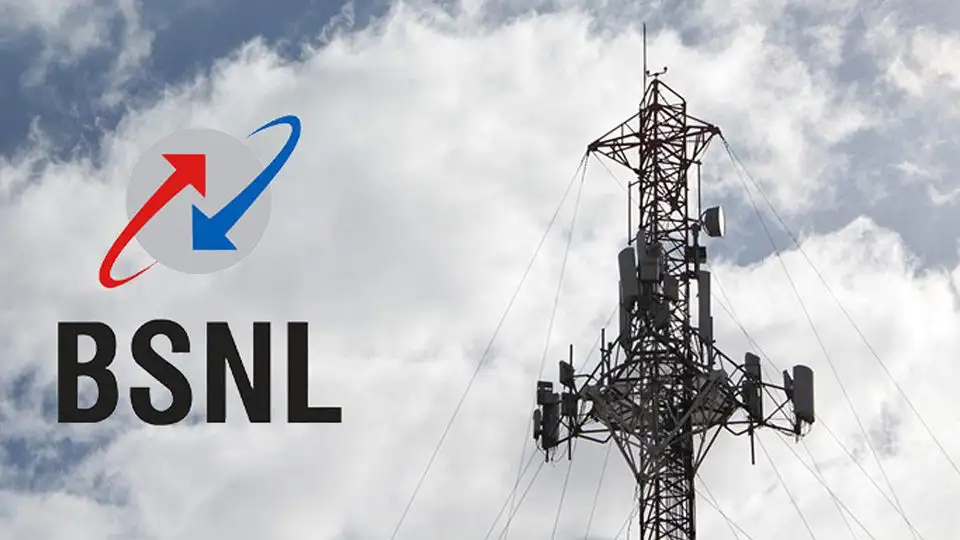BSNL Retires Caller Tune Feature, Introduces AI-Based Tool for Businesses

Bharat Sanchar Nigam Limited (BSNL) has officially pulled the plug on its once-popular Caller Tune service, marking the end of a nostalgic chapter in Indian telecom history. As user preferences shift and technology evolves, the state-run telecom operator is now setting its sights on a more advanced solution—an AI-powered, cloud-based platform designed for enterprise communication.
A Goodbye to Caller Tunes
Caller tunes, which let users replace the traditional ringing sound with music or voice messages, were all the rage during the early 2000s. Whether it was a chart-topping song or a festival greeting, people across India loved adding a personal touch to their calls. For BSNL subscribers, the service offered an affordable and entertaining way to express themselves.
However, with the rise of music streaming apps and changing listening habits, this once-trendy feature gradually lost relevance. Fewer users opted for caller tunes as smartphones and on-demand platforms made music more accessible. Observing this decline, BSNL decided it was time to move on from the dated service and explore a future-ready alternative.
Looking Ahead: AI in Enterprise Communication
Rather than simply discontinuing the service, BSNL is using this as an opportunity to innovate. The telecom provider has announced plans to launch a next-generation communication platform geared towards businesses. This new system will be powered by artificial intelligence and built entirely on cloud infrastructure.
Designed to meet the growing demands of modern enterprises, the platform will allow organizations to engage callers through personalized audio messages, smart greetings, and targeted updates. It will also integrate with popular OTT (Over-The-Top) platforms, enabling businesses to deliver a consistent and intelligent customer experience across various channels.
For instance, a healthcare provider could use the system to greet patients with appointment reminders. A delivery company might play location-based tracking updates when customers call in. The possibilities are wide-ranging, and the system’s flexibility allows businesses to customize communication like never before.
Key Features of the New System
Unlike the static and user-chosen nature of traditional caller tunes, BSNL’s upcoming solution is dynamic, data-driven, and tailored for enterprise needs. Some expected features include:
- AI-Based Personalization: Messages can adapt based on who’s calling, time of day, or caller history.
- Cloud-Based Management: Businesses can easily manage their messages and campaigns through a web dashboard without the need for physical infrastructure.
- Real-Time Insights: The platform will offer analytics to help companies measure engagement and improve voice-based interactions.
- OTT Compatibility: The system is expected to integrate smoothly with apps like WhatsApp and Telegram, helping businesses maintain a presence across platforms.
This transition reflects BSNL’s broader shift from consumer-centric services to enterprise-focused digital solutions.
Why BSNL Is Making This Move
The transformation comes at a time when telecom operators are increasingly embracing AI and automation. With customer expectations rising and digital tools becoming essential, businesses are searching for smarter ways to communicate.
BSNL, which has been facing stiff competition from private players, is repositioning itself by focusing on digital transformation. The decision to retire caller tunes and roll out an intelligent voice engagement platform is part of a larger strategy to modernize its offerings.
Many companies today seek alternatives to outdated IVR systems and generic hold music. They want communication tools that are proactive, interactive, and cost-effective. BSNL’s new system promises to deliver just that—making business calls more engaging and efficient.
What About Existing Users?
As part of the phase-out process, BSNL has started notifying subscribers that the Caller Tune service is no longer available. Users will no longer be able to activate or renew their tunes. Details about compensation or refunds for users with remaining subscriptions haven’t been fully disclosed yet, but updates are expected soon.
For long-time customers who enjoyed setting caller tunes for fun or personal reasons, the change may bring a sense of loss. However, BSNL’s focus is now firmly on future growth and helping businesses harness the power of AI in their customer interactions.
A Step Into the Digital Future
BSNL’s decision underscores a larger trend in the telecom world—the shift from passive services to intelligent, adaptive platforms. While the Caller Tune era may have ended, the launch of this AI-based solution signals the beginning of a smarter communication model for Indian enterprises.
This cloud-native platform is expected to support various industries, from retail and finance to healthcare and logistics, making it a versatile tool for improving customer relations. It also reflects the growing need for unified, voice-based communication in an increasingly digital ecosystem.
By adopting AI and integrating with modern communication tools, BSNL aims to not only stay relevant but become a strategic partner for enterprises navigating the digital age.
Final Thoughts
The end of BSNL’s Caller Tune service is more than just a product discontinuation—it’s a reflection of how technology and user behavior have evolved. In its place, BSNL is preparing to launch a more intelligent, responsive, and future-focused solution aimed at enterprises.
As companies look for smarter ways to connect with their customers, BSNL’s move to adopt AI-powered voice engagement could be a game-changer. Whether this new direction helps the telecom giant regain market share remains to be seen, but it clearly marks a bold step toward innovation.






